Graduate student affiliates at Northwestern
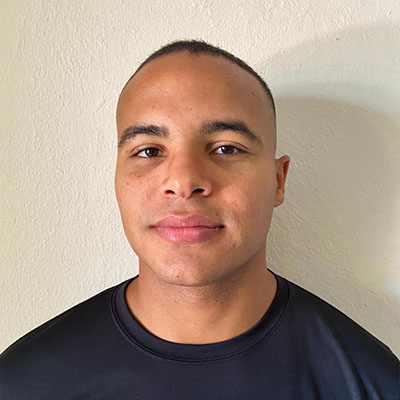
Herminio Bodon. I am deeply passionate about using computing to enhance and expand our cognitive abilities with the ultimate goal of empowering people. I am pursuing a PhD in Technology and Social Behavior at Northwestern University to do so. I am currently researching innovative learning experiences combining data science, wearable computing, and physical activity for youth from marginalized communities. Along with my research goals, it is to spread awareness about computing and assist people learn computational thinking and computer literacy. Current interests include Cs Education, AI, Data Literacy, Wearable Computing, and Augmented Cognition. More information here.
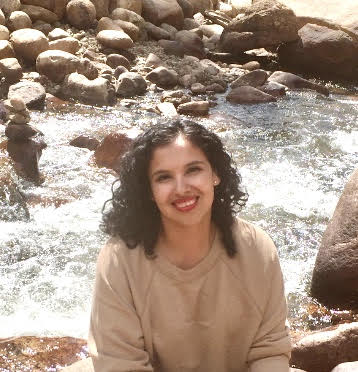
Crystal Camargo is a Ph.D. Candidate in the Department of Radio/Television/Film at Northwestern University. As the daughter of Mexican immigrants, she is deeply invested in Latinx representation in both U.S. English- and Spanish-language television, immigration media, and digital media activism. She has been published in SCMC + and is currently a Flow Journal TV columnist. She received her B.A. in International Studies, Spanish Language & Literature, and Gender & Women’s Studies from the University of Denver and an M.A. in Screen Cultures from Northwestern. She is also a Mellon Fellow in the Comparative Race and Diaspora Cluster Program and currently serves as the 2020-2021 Latinx Studies Program Teaching Fellow.
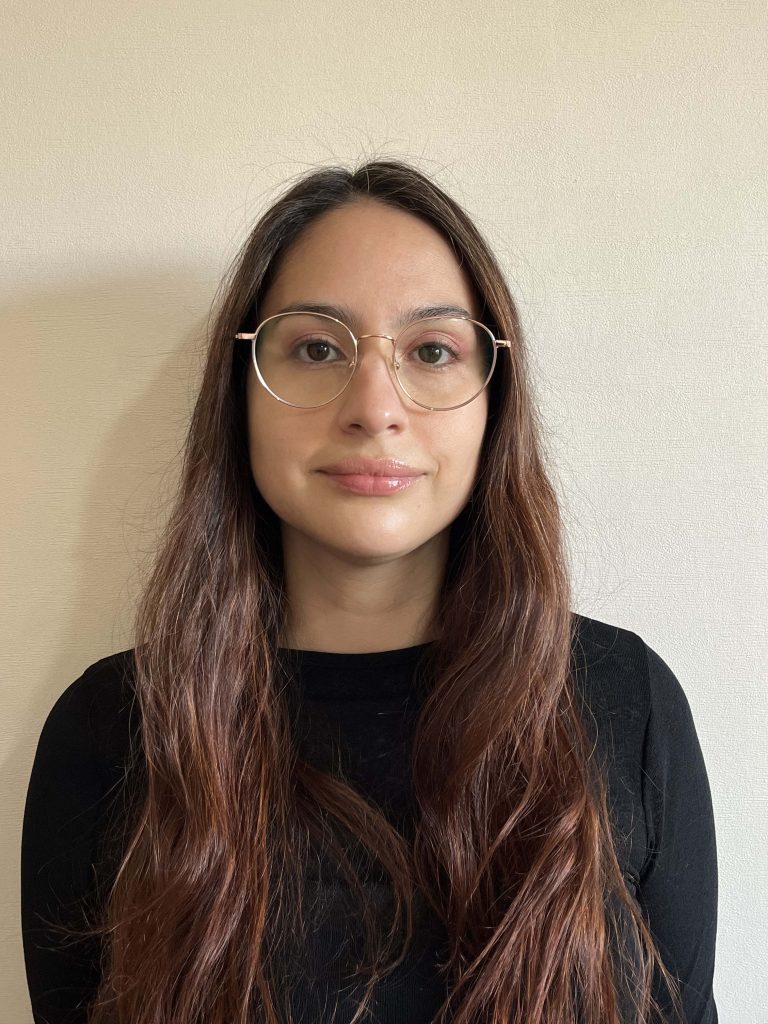
Catalina Farías is a first year Ph.D. student in the Media, Technology and Society program. She studies digital inclusion in vulnerable populations, digital media access and use, and gender. Born and raised in Santiago, Chile, she holds a BA in Social Communication from the Pontificia Universidad Católica de Chile. She has worked on international projects on feminism digital activism, and several national-funded projects on digital inclusion and access to digital media, digital skills in rural populations and use of digital media.
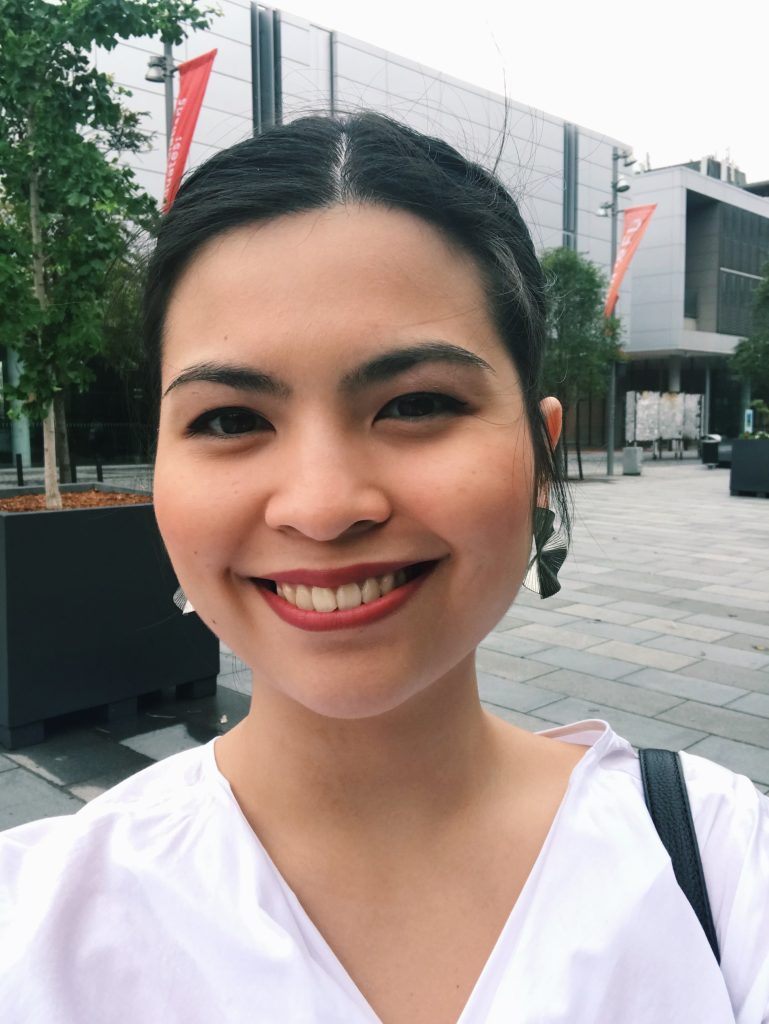
Fatima Gaw is a first-year PhD student in the Media, Technology and Society program. Her research centers on the mediation of platforms, algorithms and digital technologies in cultural production, politics, and public discourse in the Global South. Her recent work involves studying networked disinformation, manipulation and resistance on digital media, with focus on platforms, influencers and social movements, published in Media, Culture and Society, Convergence, Policy & Internet, among other journals. She has a Master’s degree in Digital Communication and Culture from the University of Sydney and a Bachelor’s degree in Broadcast Communication, Magna cum laude, from the University of the Philippines.
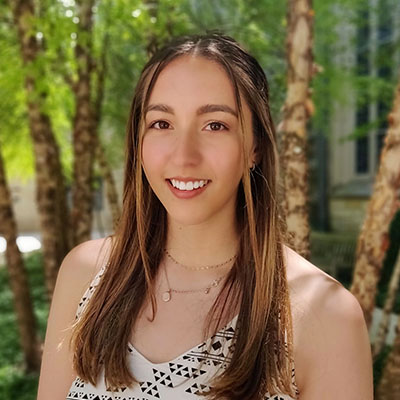
Valerie Gruest is a second-year PhD student in the Media, Technology and Society doctoral program, working with Prof. Pablo Boczkowski. She is interested in the effects of new media on eating disorders and body image issues, visibility of marginalized communities in digital media, and the evolution of contemporary art practices in online spaces. Valerie holds a BA in Communication Studies with a double major in Art, Theory & Practice from Northwestern University. In addition to her scholarly research, she is a multidisciplinary artist exploring issues of race, gender and trauma, and currently serves as an advocate for mental health and safe sport for aquatic disciplines in the Americas, given her background as a Guatemalan Olympic swimmer.

Thayane is a first-year Ph.D. student in Media, Technology, and Society, and a member of the Digital Apothecary Lab. Born and raised in Rio de Janeiro, Brazil, she holds a BA in Communication Studies from the Federal University of Rio de Janeiro and a Master’s degree in Communication Technologies and Culture from the Rio de Janeiro State University. In addition to her academic path, she worked as a content Analyst at Brazil’s biggest media company, Globo Group, on a children’s TV channel called Gloob. Her current research interest is how marginalized people use social media and create independent content in order to promote social justice and challenge stereotyped conceptions reinforced by traditional media regarding gender and sexuality.

Yena Lee is a second-year Ph.D. student in the Media, Technology and Society program. She was born in Korea and grew up in Brazil. She received her B.A. in Media Studies from the University of California, Berkeley. She is interested in studying the evolving forms of networked social movement and their impact on both consciousness-raising and policy making. Her most recent project looks at the rise of activist chatbots in Brazil that monitor the Congress to understand how civil societies are using chatbots to provide legislative information and stimulate participation.
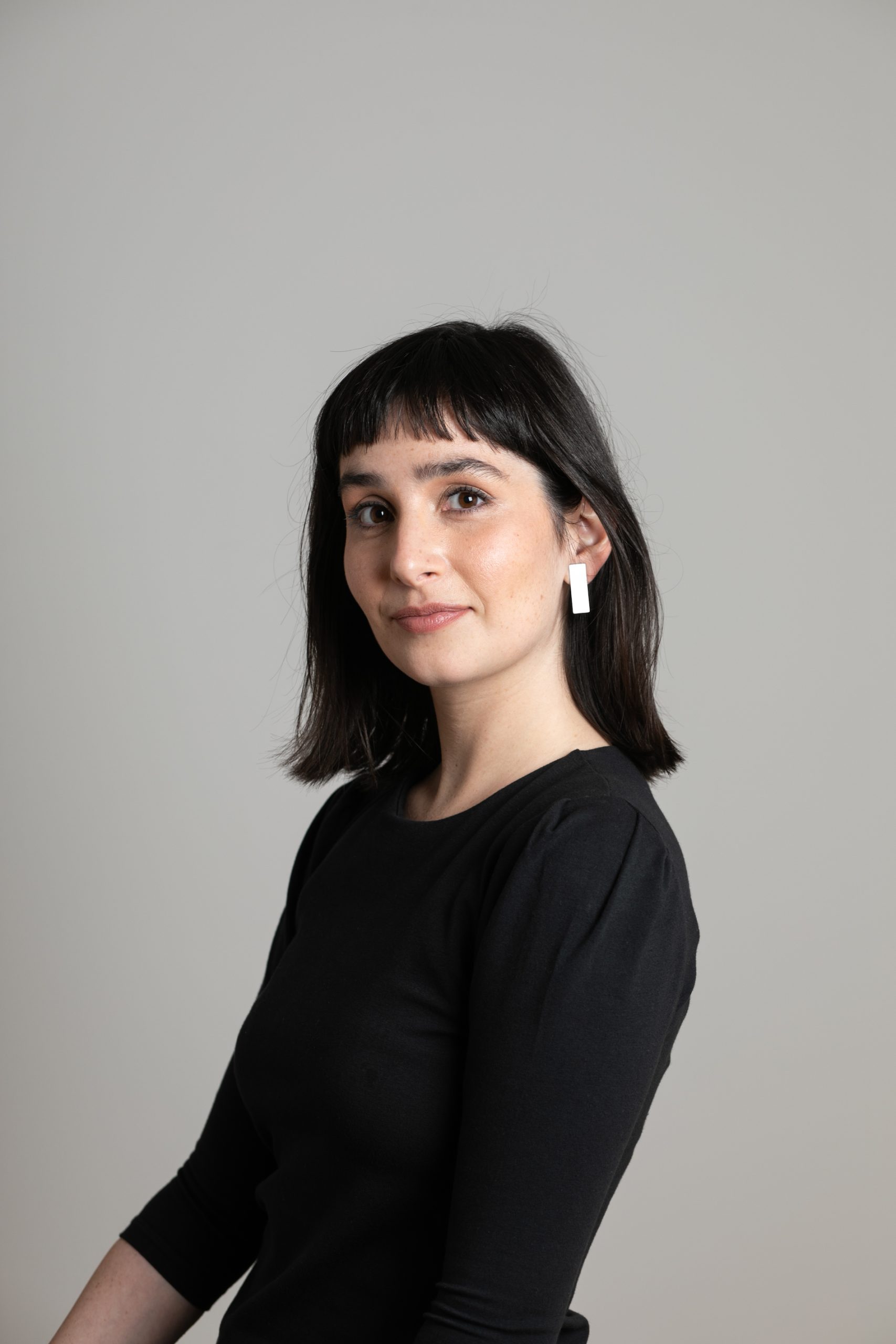
Mora Matassi (she / ella) is a Ph.D. candidate in Media, Technology and Society at Northwestern University interested in topics of digital culture and computer-mediated communication. She holds an M.A. in Media, Technology, and Society (Northwestern University), an Ed.M. in Technology, Innovation, and Education (Harvard University), and a B.A. in Communication (Universidad de San Andrés). Mora has been coordinator of the Center for Latinx Digital Media and the Center for the Study of Media and Society in Argentina, as well as research assistant for the CLEVR project, a partnership between MIT’s Education Arcade and the MIT Game Lab. Her papers have appeared in New Media & Society, Journal of Computer-Mediated Communication, Social Media & Society, among others. Her book To Know Is to Compare Studying Social Media across Nations, Media, and Platforms, written with Pablo Boczkowski, will be published by the MIT Press in 2023. Mora has contributed to CNN Radio Argentina and co-produced/hosted a podcast with Revista Anfibia about self-tracking technologies. She has received scholarships from institutions like the Fulbright Commission and the Harvard Graduate School of Education.
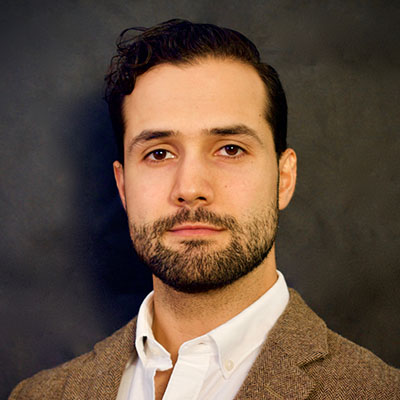
José Luis Quintero Ramírez is a PhD candidate in Rhetoric and Public Culture, whose research explores how hype emerges from online deliberation, and how it serves as an engine for misinformation and political mobilization alike. He is a Buffet Global Impacts Fellow, departmental liaison for Rhetoric and Public Culture, and a close collaborator of the NU Center for Civic Engagement. His interests within academia are influenced by experience in the Information Technology sector, Search Engine Optimization, Foreign Languages, Public Speaking, and Creative Writing.
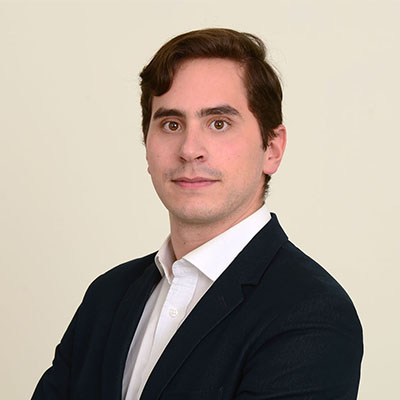
Esteban Villa-Turek is a first-year PhD student in the Media, Technology and Society program at Northwestern University, working with Prof. Erik Nisbet in his Center for Communication and Public Policy. He studies online disinformation with special attention to its policy implications, focusing on political and scientific disinformation in Latin America using applied data science and computational methods. He holds a bachelor’s degree in Law from Rosario University (Bogotá, 2014), a master’s degree in Public Policy from the Hertie School of Governance (Berlin, 2019) and is currently finishing a master’s in Analytics from Georgia Tech.
External graduate student affiliates
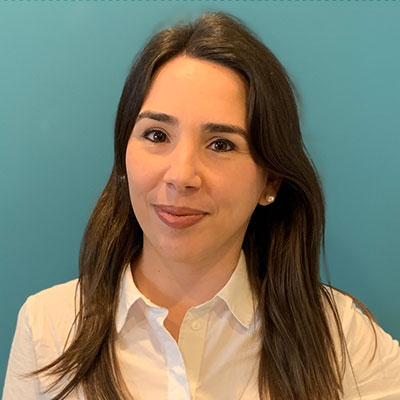
Soledad Arreguez Manozzo is a master’s student in Interactive Digital Communication at Universidad Nacional de Rosario in Argentina. She is currently working on her thesis on journalistic narratives in social media, especially on how Argentine media outlets report the pandemic on Instagram. She holds a degree in Journalism and postgraduate studies in Education and New Technologies. Soledad is interested in communication, education, and technology. She is adjunct lecturer at the Universidad Nacional de Lomas de Zamora (UNLZ) and Universidad Católica Argentina (UCA). She coordinates Education programs at Desconfio Project, an initiative that fights against disinformation. Soledad also integrates the Education and New Technologies Program of FLACSO Argentina. She is an editor at AUNO and participates in projects related to communication and education in the digital environment.
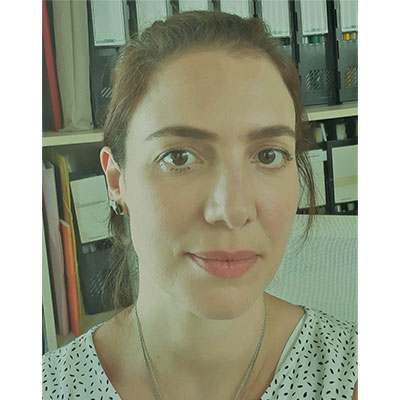
Born and raised in Brazil, Carla Tonetto Beraldo is a master’s candidate in the graduate program of Communication and Contemporary Culture at the Federal University of Bahia (UFBA). She is currently part of the Online Journalism Research Group (GJOL), whose research in digital journalism and new communication technologies has been pioneering since 1995 in Brazil. There, her central theme of research is accessibility to digital media and the responsibility of journalists in creating inclusive content – directing her gaze particularly to the technology- journalism relationship and how it has changed the classic principles of the profession. She holds an M.A. in Marketing from Fundação Getúlio Vargas (FGV), and specialization in Publishing from the Faculty of Social Communication Cásper Líbero, and a B.A. in Communication (Pontifícia Universidade Católica). She is interested in accessibility to support social inclusion for people with disabilities as well as others, such as older people, people in rural areas, and people in developing countries.
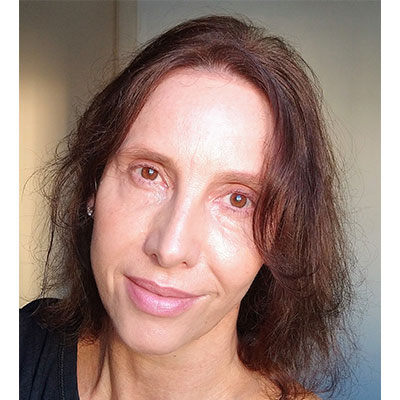
Regina Bochicchio is a master’s candidate in the Postgraduate Program in Communication and Contemporary Culture (PósCom) at the Faculty of Communication (Facom) at the Federal University of Bahia (UFBA), in Brazil. She is a part of the Online Journalism Research Group (GJOL) and her research seeks to understand news consumption among young adults. Graduated in Communication with specialization in Journalism at Facom-UFBA, she worked as a reporter, editor and columnist for newspapers in the state of Bahia and collaborates with websites of journalistic associations with national coverage.
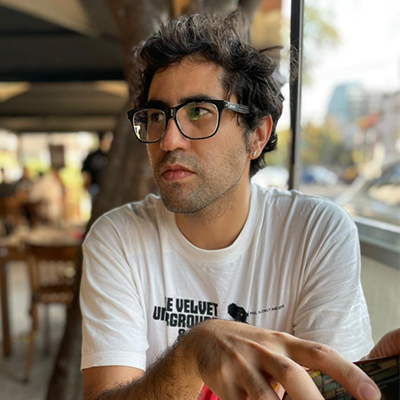
Alejandro Bruna is a PhD candidate in the School of Communications at Pontificia Universidad Católica de Chile, and certified Fellow of The Salzburg Academy Program on Media and Global Change of the Salzburg Global Seminar. He holds a B.A. in Journalism and Social Communication, with an Academic Certificate on Dramaturgy from the Pontificia Universidad Católica de Chile. His research interests include digital-storytelling, transmedia and dramatic structure, as well as social media and mass-media influences on television fiction. His work has been published as part of compilations of the Ibero-American Observatory of Television Fiction. His main academic research has been presented in different conferences, including the Latin American Studies Association Annual Conference and the Association for Education in Journalism and Mass Communication. Besides his academic work, he works as an independent scriptwriter.
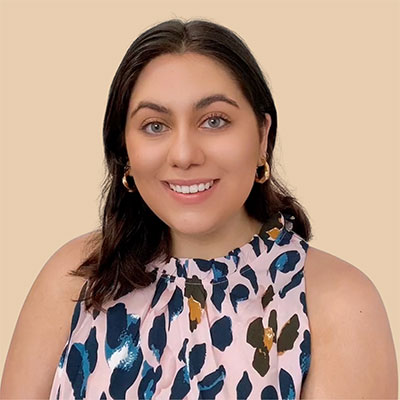
Alexis-Carlota Cochrane (she/her/ella) is a Peruvian Canadian digital storyteller and PhD student in Communication, New Media, and Cultural Studies at McMaster University (Hamilton, Ontario, Canada). She received her B.A. in Communication, Culture, Information and Technology from the University of Toronto, a Certificate of Digital Communications from Sheridan College, and an M.A. in Communication and New Media from McMaster University. Alexis-Carlota’s research intersects digital culture, critical race and data studies, politics of representation, and Latinx diaspora studies. Her recent research projects include a major research project considering how Latin Americans in Ontario, Canada utilize digital communities to navigate identity and culture, and an Ontario-wide quantitative analysis of how mental health stigma affects the Latin American community and their ability to access mental health resources.
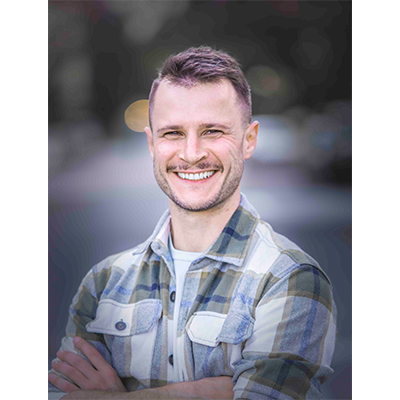
Lucas Durr Missau is a Ph.D. student in Social Science at Universidad de Buenos Aires (Argentina). He holds a Ph.D. in Communication from the Universidad Nacional de La Plata (Argentina). Lucas is the Co-Founder and Co-Director of the Journalism Experimentation Lab (Universidade Federal de Santa Maria) where he currently conducts research and development projects focused on media and journalism in the digital environment. His latest research project, which is the subject of his ongoing doctoral thesis, is focused on the influence of misinformation on voting decisions in the Brazilian and Argentinean contexts during the upcoming presidential elections in each country. In this case, the research intends to understand the social and cultural aspects imbricated in the diffusion of disinformation that lead people to believe or not believe the malicious content.
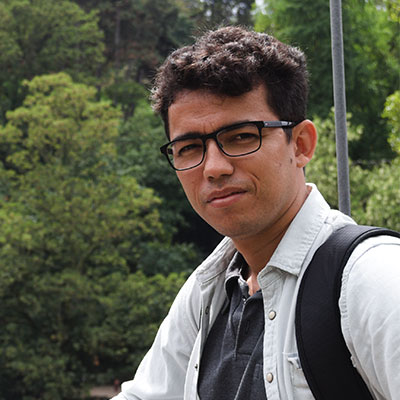
Moisés Costa Pinto (he / él / ele) is a Ph.D. student in the Postgraduate Program in Contemporary Communication and Culture (Póscom) at the Federal University of Bahia (UFBA / Brazil). He is a member of the Online Journalism Research Group (GJOL) where develops research on the relationship between artificial intelligences (sciences and technologies based on algorithms, bots, machine learning, big data, NLG, etc. – focused on cognitive mimicry) and digital journalism, and how this relationship can shift journalistic work to new paths, including innovative ones. He holds a Master in Cyberculture from Póscom / UFBA and a bachelor’s degree in Social Communication-Journalism from the Faculty of Communication / UFBA.
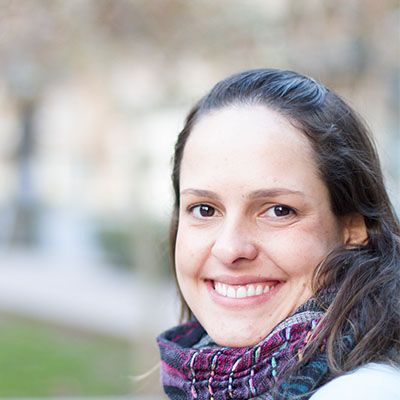
Silvia Dal Ben Furtado is a Ph.D student in the School of Journalism and Media at the University of Texas at Austin, where she researches the sociotechnical networks involved in the development of Artificial Intelligence applied in the newsrooms. She has a MA in communication (2018) from the Federal University of Minas Gerais (UFMG) and her dissertation earned Adelmo Genro Filho Award granted by SBPJor. She completed her B.A. in Journalism and in Radio and Television from UFMG, with an Exchange Program at the University of Nottingham. As a journalist, she worked as a multimedia reporter at Portal Uai and as an executive producer at D2R Studios, both in Belo Horizonte, Brazil.
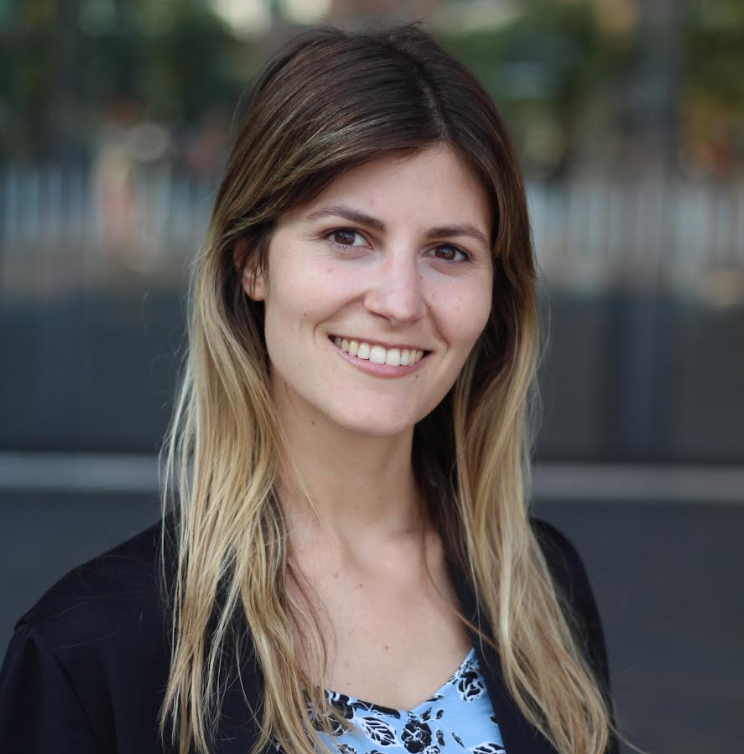
Mariana Fried is a PhD candidate in the Media and Communication department of Erasmus University Rotterdam. She obtained a MA in Media, Culture and Society (2019) and an MSc in Sociology of Culture, Media and the Arts (2020) from the same university. Her previous research has covered topics such as the role of Argentine journalists in processes of (feminist) sociolinguistic change, the reception of audiences to LGBTQ+ inclusive advertisements, reflexive and discursive practices on race and ethnicity among sports journalists, and the discursive construction of smart cities. Her PhD project, supported by the Dutch Research Council, addresses the reshaping of Silicon Valley-inspired narratives about the role of technology in the city by innovation workers in Rotterdam and Córdoba.
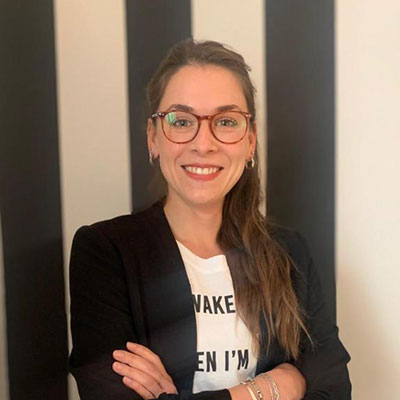
Victoria Gadea Tiscornia (she/her) has a Political Science degree from Universidad de la República and an Ms on Public Administration – Universidad Católica del Uruguay. She is currently a PhD student in communication – Universidad Católica del Uruguay, her research project is focused on uncivil speech in social media. She is a person interested in social media research and findings especially on its impact on democracy, institutions and the citizens’ relationship. For the last six years she has been dedicated to political communication, specifically related to politics and social media. She has worked in plenty of political campaigns in Latin America. She does broadcast weekly coverage in which provided insights about politics and the relationship between citizens’ behaviour and social media in No Toquen Nada since 2019.
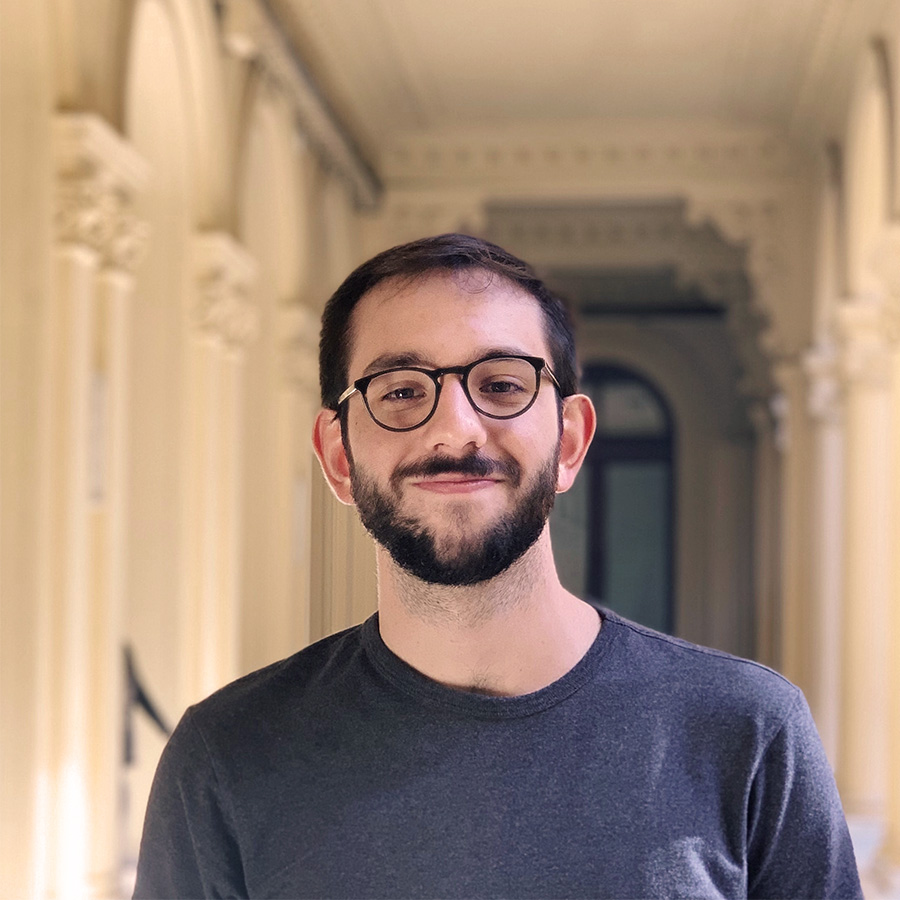
Tomás Guarna is a second-year graduate student at MIT’s Comparative Media Studies program, where he researches in the Civic Design Initiative. He is interested in civic media, digital governance, and trust. Tomás received his B.A. in Social Sciences from Universidad Torcuato Di Tella in Buenos Aires, Argentina. Following that, he worked for the Presidency of Argentina’s Digital Communications Team. Tomás is a Human Rights & Technology Fellow at the MIT Center for International Studies.
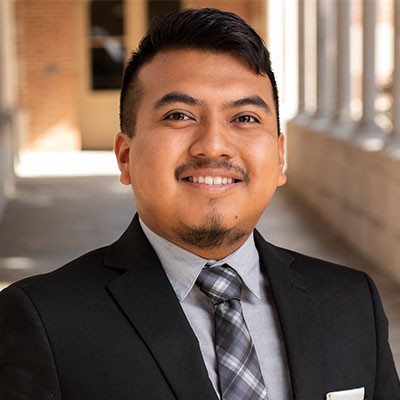
Edgar Fidel Lopez is a Ph.D. student in the Urban Education Policy program at the University of Southern California. He obtained his B.A.s in Political Science and Chicana/o Studies at UCLA and his M.Ed. in Educational Leadership and Policy at the University of Texas at Austin. He researches at the Pullias Center for Higher Education and Lumina Foundation. Previously, he worked for the College Assistance Migrant Program, Project MALES (Mentoring to Achieve Latino Educational Success), and the UCLA Early Academic Outreach Program. He is a Gates Millennium Scholarship recipient. His research interests include (1) mentoring relationships, (2) equitable access to college and graduate education, (3) first-generation/low-income, and (4) Latina/o/x issues in higher education.
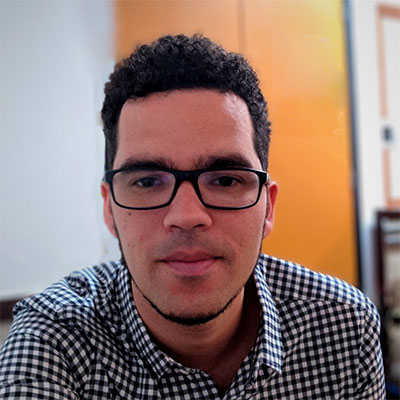
Alexandro Mota is a master and PhD student in Contemporary Communication and Culture at the Federal University of Bahia – Póscom/UFBA (Brazil), and member of the Online Journalism Research Group (GJOL). My dissertation, ‘Live Streaming Journalism: A study of journalistic appropriations of the technology of audiovisual live broadcasting in Facebook’, won the Adelmo Genro Filho Journalism Research Award (2020), awarded by the Brazilian Journalism Researchers Association. In the doctoral research, I engage into how journalists go over the opacity of the functioning of networks to investigate platforms, through journalism theories and the notion of ‘interpretive community’. I worked as a local reporter in the city of Salvador and I was a substitute professor at the School of Communication of the UFBA (2019) from which I hold a BA in Social Communication (2013).
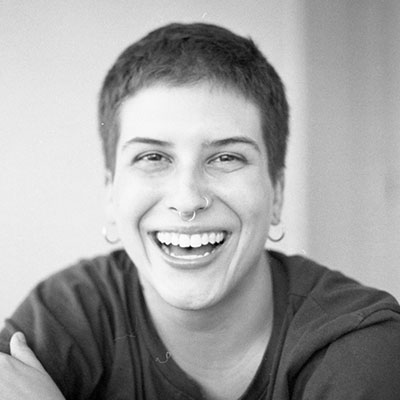
Julianna Motter is a PhD candidate in Contemporary Communication and Culture at the Federal University of Bahia, member of the Research Group on Gender, Digital Technologies and Culture (Gig@). Master in Human Rights and Citizenship at the Graduate Program in Human Rights and Citizenship at the University of Brasília. Graduated in Journalism at the University Center of Brasília and graduated in Philosophy at the University of Brasília. Has interests in gender, sexualities, lesbianities, platformization, social networks, algorithmic lesbophobia and relational ethics.
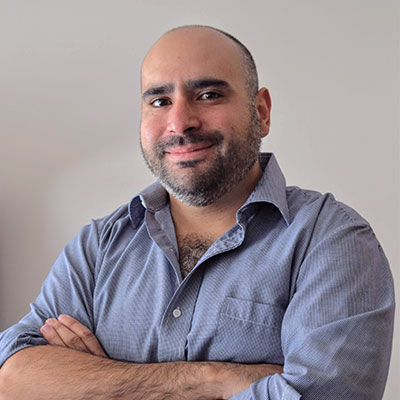
Enrique Núñez-Mussa, born in Santiago de Chile, studies a Ph.D. in Information and Media at Michigan State University and is a Fulbright scholar. His research interests are journalism’s societal function, authority, discourse, and norms. Before, he was an Adjunct Assistant Professor at the School of Journalism of Pontificia Universidad Católica de Chile (PUC). He has worked on projects about misinformation and fact-checking, digital news, and journalism and democracy, such as the Chilean chapters of the Digital News Report and The Media for Democracy Monitor. His work has been published in book chapters and journals like Communication & Society, Estudios sobre el Mensaje Periodístico, Comunicación y Sociedad and Obra Digital. He holds a Master Erasmus Mundus in Journalism, Media, and Globalization at Aarhus University with a joint degree in Journalism and Media Across Cultures at Hamburg University. His BA is in Social Communication, with a Major in Journalism and a Minor in Literature from PUC.
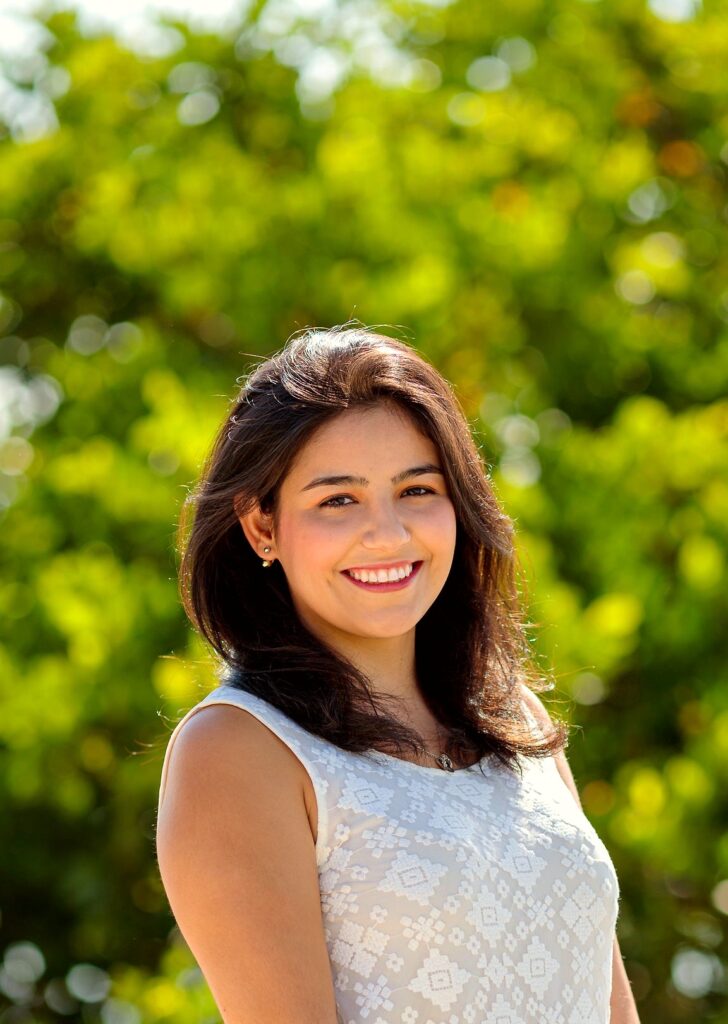
Diana Sandoval Simán is a Ph.D. student in Sociology at the University of Chicago. Born and raised in El Salvador, she is interested in the way that disinformation spreads across Hispanic communities in the United States and Latin America. Her current research examines trust in media within U.S.-based Hispanic communities. Her previous research focused on the politicization of public security policy in El Salvador. She holds a B.A. from the School of Public and International Affairs at Princeton University.
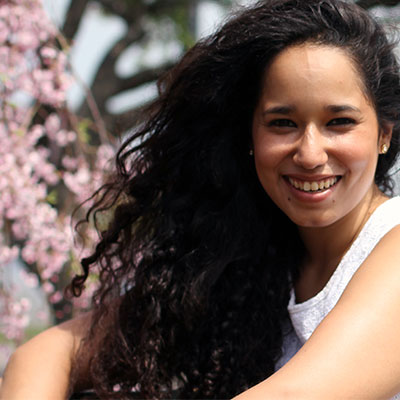
Ámbar Reyes is a second-year graduate student at MIT in the Department of Comparative Media Studies and a researcher at the Open Documentary Lab. She has a deep interest in the documentary as a way to explore, represent and engage with the world. Her work revolves around questions of memory, migration, and labor. Her research focuses on transnational modes of organization, community-building and network formation from Latinamerican delivery workers in NYC. Ámbar is a Human Rights & Technology Fellow 2021-2022 at the MIT Center for International Studies.
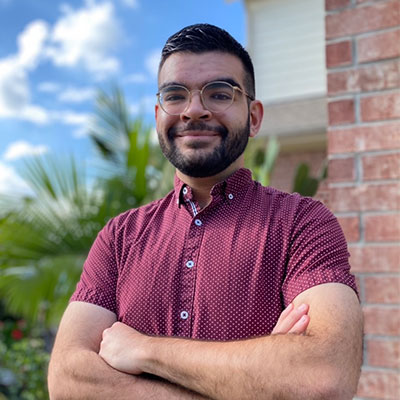
Javier Rivera is a PhD student in Communication at the University of Southern California’s Annenberg School for Communication and Journalism. His research interests include Latinx media and popular culture, ethnoracial performance in online space, and how media and technology change our understanding of Latinidad. Specifically, he is interested in aspects of embodiment and the ways platforms allow for the simultaneous disciplining and flourishing of ethnoracial identity. He completed an MA in Mexican American and Latina/o Studies from the University of Texas at Austin. Prior to his MA, Javier earned a BA in Women’s and Gender Studies and a BS in Microbiology also from the University of Texas at Austin.
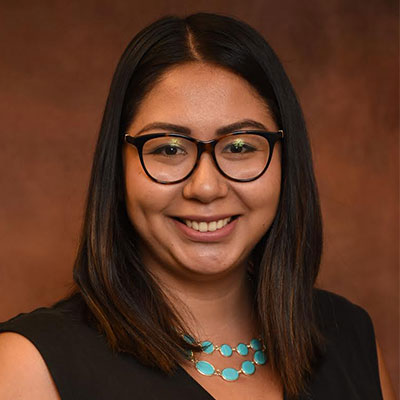
Originally from San Diego, California, Karina Santellano is a Ph.D. candidate at the Department of Sociology at the University of Southern California. Karina’s dissertation aims to empirically and theoretically advance the relationship between capitalism and race/ethnicity by examining how Latinxs themselves are using ethnicity in creative business ventures, specifically Latinx-themed and owned coffee shops, that re-shape ethnicity itself and that transform surrounding neighborhoods. Karina has published in Ethnic and Racial Studies, Sociology of Race & Ethnicity, Sociological Perspectives, California Journal of Politics and Policy, Inside Higher Ed, and the USC Equity Research Institute blog.
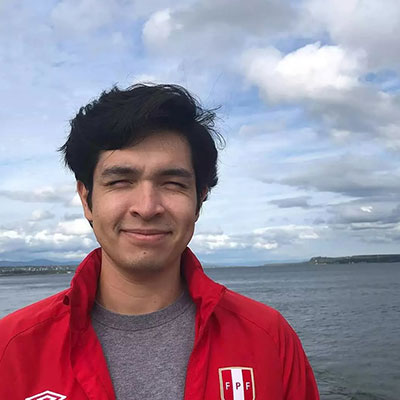
Salvatore Solimano is a graduate Political Science student at the University of Toronto. He received his B.A. in Political Science and Latin American Studies at McGill University (Montreal, Canada). His research unpacks far-right digital communities in Latin America, focusing mainly on Brazil and Peru, through a digital ethnography approach. He is particularly interested in the role that disinformation and aggravating rhetoric plays in these far-right networks. Salvatore is also interested in targeted digital espionage against journalists in Latin America, with a focus on Mexico, he monitors such threats at the Citizen Lab (Toronto, Canada), where he serves as a research assistant. Salvatore was born in Lima, Peru.
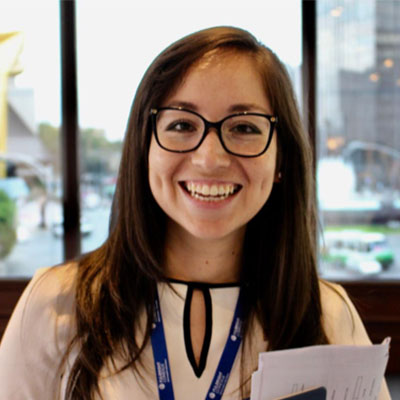
Mariana Sanchez Santos holds a BA in International Relations from ITAM in Mexico City and a Master of Arts in Political Communication from the University of Leeds, UK. Currently a PhD student in the School of Communication at American University. She has also taken courses in City University of Hong Kong, Universidad de San Andrés in Buenos Aires, Stanford University and Oxford University. Her doctoral research focuses in political communication, elections and technology in Latin America. Prior to joining American University, she worked for different offices of the government of Mexico, as a consultant to media companies and as a communications officer to the Fulbright Program in Mexico. She also worked as a research assistant in the Civil Society and Philanthropy Project from ITAM.
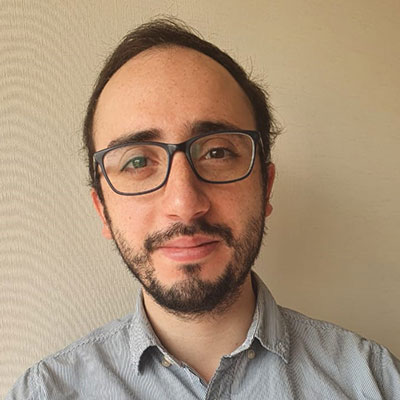
Matías Valderrama Barragán is a first-year PhD student at the Centre for Interdisciplinary Methodologies of Warwick University. He holds an BA and MA in Sociology from the Pontificia Universidad Católica de Chile. In his Master’s thesis, he mapped a controversy around a hydroelectric project in the south of Chile with digital methods. He has worked on different Fondecyt research projects and studies for NGOs on the social implications of multiple digital technologies in Chile, such as environmental sensors, drones, predictive models and self-tracking devices. His current doctoral research focuses on how social media metrics become problems or issues of public concern for different actors and how platforms test new techniques and designs to detect, exploit or reduce the reactivity to these metrics.
